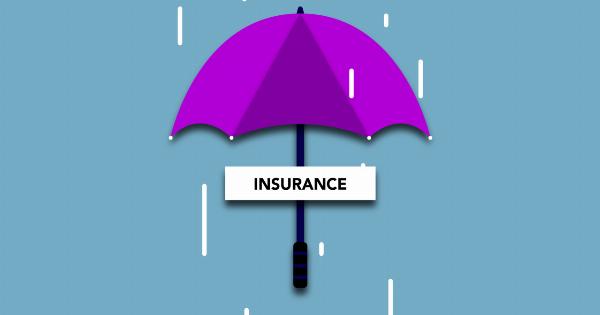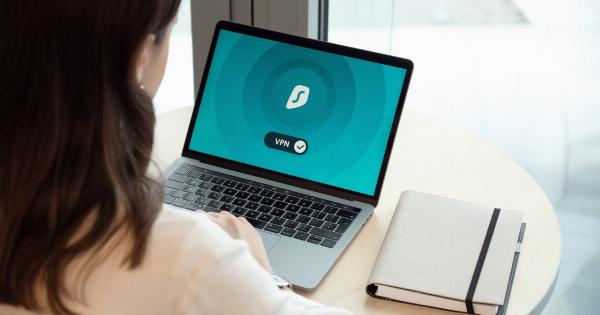In today’s digital age, maintaining the safety and security of your personal and sensitive information has become more crucial than ever.
Hackers and cybercriminals are constantly devising new techniques to breach data systems and exploit vulnerabilities. Therefore, it is essential to take proactive measures and employ advanced protection mechanisms to safeguard yourself and your valuable information.
The Importance of Security
Security is of utmost importance in both personal and professional realms. Whether you are an individual with important financial information or a business owner responsible for safeguarding customer data, ensuring security measures is crucial.
A security breach can have severe consequences, including financial loss, reputational damage, and even legal consequences. It is therefore imperative to stay ahead of potential threats and implement robust protection measures.
Robust Password Protection
One of the fundamental areas of security is password protection. Weak passwords are a significant vulnerability that hackers can exploit easily.
To prevent unauthorized access to your accounts or systems, it is essential to use strong and unique passwords. Consider using a combination of upper and lowercase letters, numbers, and special characters. Additionally, avoid using easily guessable information such as birthdates or names.
Regularly updating passwords and utilizing a password manager can also enhance your protection.
Two-Factor Authentication
Two-factor authentication (2FA) is an additional layer of security that provides enhanced protection.
By requiring a secondary verification step, such as inputting a unique code sent to your mobile device, 2FA ensures that even if your password is compromised, unauthorized access is still prevented. Implementing 2FA is a simple yet highly effective way to fortify your security and minimize the risk of unauthorized access.
Email Security Measures
Emails have become a prime target for cyberattacks, with phishing emails and malicious attachments being common vectors for breaches. To safeguard against email threats, it is important to employ robust security measures.
Use spam filters to block unsolicited emails and suspicious attachments. Be cautious while opening emails from unknown senders or those that contain unexpected requests. Additionally, avoid clicking on suspicious links and regularly update your email client to ensure you have the latest security patches.
Secure Web browsing
Browsing the internet can expose you to various security risks, including malware and phishing attacks. To stay safe while browsing, it is important to use a secure web browser and keep it updated with the latest security patches.
Enable pop-up blockers to prevent potentially malicious pop-ups. Exercise caution while visiting unfamiliar websites, particularly those that may contain illegal or explicit content.
Additionally, consider using a virtual private network (VPN) to encrypt your internet connection and protect your online activities from prying eyes.
Regular Software Updates
Software vulnerabilities are a common target for cybercriminals. To mitigate the risks posed by these vulnerabilities, it is crucial to keep all your software and applications up to date.
Software updates often contain security patches that address known vulnerabilities. Regularly check for updates and install them promptly to ensure that you are benefiting from the latest security enhancements.
Data encryption
Encryption is an essential safeguard for protecting your sensitive data. Encrypting your data ensures that it is unreadable to unauthorized parties.
When storing files or transmitting data, use encryption protocols such as Secure Sockets Layer (SSL) or Transport Layer Security (TLS). These protocols create secure connections and encrypt the data being transmitted. Additionally, consider using encrypted storage devices or cloud services to safeguard your important data and prevent unauthorized access.
Implementing Firewalls
Firewalls act as a barrier between your device and potential threats from the internet. They monitor incoming and outgoing network traffic to identify and block suspicious or malicious activity.
Ensure that your devices have a firewall enabled, whether it is a hardware-based firewall or software firewall. Additionally, configure your firewall settings to restrict unnecessary network traffic and allow only authorized connections, thereby enhancing your security.
Regular Data Backups
Regularly backing up your data is a crucial element of any security strategy. In the event of a security breach or system failure, having a recent backup ensures that you can restore your data and mitigate potential loss.
Determine the frequency at which you need to back up your data based on its criticality and importance. It is advisable to store backups on separate devices or encrypted cloud storage to prevent data loss in case of physical damage or theft.
Stay Informed and Educated
Lastly, staying informed and educated about the latest security threats and best practices is essential for maintaining your safety and security. Keep yourself updated on the latest cybersecurity news and trends.
Regularly educate yourself and your employees about security awareness, highlighting potential risks and how to avoid them. By staying proactive and aware, you can significantly reduce the likelihood of falling victim to cyber threats.
Conclusion
With the increasing prevalence of cyberattacks and the potential risks they pose, ensuring your safety and security is paramount.
By incorporating advanced protection measures such as robust passwords, two-factor authentication, and regular software updates, you can significantly enhance your security posture. Implement email security measures, secure web browsing practices, and data encryption techniques to safeguard your personal and sensitive information.
Additionally, stay informed and educated about the latest security threats to stay one step ahead of potential attackers. By prioritizing your security, you can greatly reduce the risk of falling victim to cybercriminals and enjoy a safer digital experience.






























